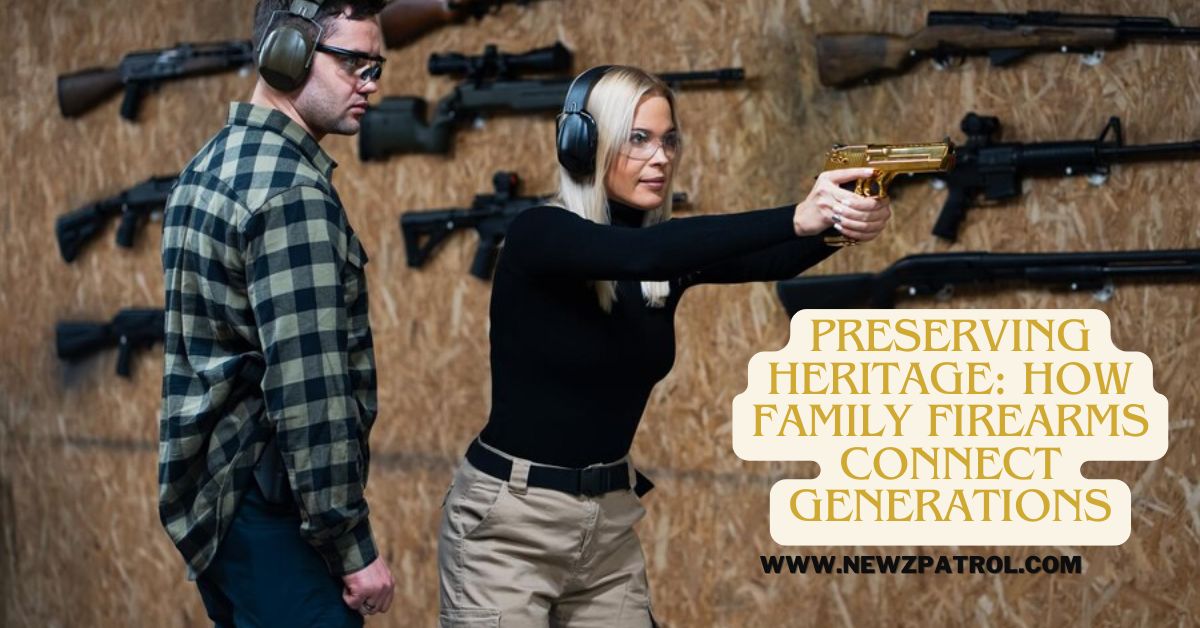In many families, heirlooms are passed down as a way of preserving history and keeping memories alive. While jewelry, furniture, and letters often hold sentimental value, family firearms carry a unique legacy. Whether it’s a well-worn hunting rifle, a military service pistol, or a handcrafted shotgun, these firearms are more than just tools—they are symbols of tradition, resilience, and heritage.
Family firearms tell stories of past generations, commemorating service, survival, and shared experiences. They provide a tangible connection to history, linking grandparents, parents, and children through a shared appreciation of craftsmanship, responsibility, and respect.
In this article, we’ll explore how family firearms help connect generations, the importance of preserving them, and the best ways to pass them down responsibly.
The Role of Firearms in Family Heritage
For many, a family firearm is much more than an object—it represents:
History & Legacy: A rifle carried by a grandfather in wartime or a shotgun used in generations of hunting trips holds deep historical significance.
Shared Traditions: Teaching younger generations about firearm safety, hunting, or sport shooting fosters strong family bonds.
Respect & Responsibility: Owning and caring for a passed-down firearm teaches discipline and responsibility.
Stories Passed Down Through Generations
Every heirloom firearm has a story:
- A Civil War musket kept in pristine condition as a family treasure.
- A WWII service pistol carried by a great-grandfather and displayed with honor.
- A hunting rifle used by multiple generations to teach outdoor skills.
These firearms serve as historical artifacts, helping families preserve their own unique narratives.
Preserving Family Firearms: Best Practices
To ensure that family firearms remain a meaningful part of your heritage, it’s crucial to preserve them properly.
1. Safe Storage & Maintenance
- Keep firearms in a climate-controlled safe to prevent rust and damage.
- Regularly clean and oil them to maintain their condition.
- Store ammunition separately to ensure safety.
2. Documenting the Firearm’s History
- Record the firearm’s origin, previous owners, and historical significance.
- Keep any related documents, such as military records or receipts.
- Consider creating a family history book to accompany the firearm.
3. Responsible Passing Down of Firearms
- Educate younger family members on safe handling and proper care.
- Follow local and federal laws on firearm inheritance.
- Clearly document the firearm in wills or estate plans to avoid future legal complications.
Teaching the Next Generation
Passing down a family firearm is about more than ownership—it’s about sharing values.
Firearm Safety First: Teach proper handling, storage, and respect for firearms.
The Importance of Hunting & Sport Shooting: Engage younger generations in outdoor traditions.
Understanding Family History: Share the stories behind the firearm to create a lasting connection.
When younger family members learn why a firearm is significant, they’re more likely to respect and cherish it as part of their heritage.
Legal Considerations When Passing Down Firearms
Before transferring a family firearm, consider:
✔ State & Federal Laws: Laws regarding firearm inheritance vary. Some states require permits or background checks.
✔ Proper Documentation: Ensure a bill of sale or written record exists if required.
✔ Firearm Registration & Transfer Laws: Some regions may have restrictions on inherited firearms.
By following the legal process, you can ensure that your family firearm remains a valued heirloom without legal complications.
Conclusion
Family firearms are more than objects—they are links to our past, reminders of shared experiences, and symbols of responsibility. By preserving these heirlooms and passing them down with care, we keep traditions alive and ensure that future generations understand the significance of their family history.
Whether it’s a service weapon from military history, a hunting rifle used in family traditions, or an antique collectible, each firearm tells a story worth preserving. By taking the right steps in care, education, and legal compliance, you can ensure that this heritage remains intact for generations to come.
FAQS
Q1: What’s the best way to store an heirloom firearm?
Keep it in a climate-controlled safe, clean it regularly, and store ammunition separately for safety.
Q2: Can I legally pass down a firearm to my children?
Yes, but laws vary by state. Check local and federal firearm inheritance laws before transferring ownership.
Q3: How can I teach younger family members about the significance of a family firearm?
Share the history, significance, and proper handling of the firearm while emphasizing responsibility and respect.
Q4: What if a family firearm is too old or damaged to use?
Even if it’s no longer functional, an heirloom firearm still holds historical and sentimental value and can be preserved as a display piece.
Q5: Should I have a family firearm appraised?
Yes! An appraisal can help determine its historical value, insurance needs, and restoration options.
Keeping History Alive, One Heirloom at a Time
Family firearms are a powerful way to connect past and future generations. With the right care, education, and legal considerations, they can continue to be treasured heirlooms that tell stories, teach lessons, and preserve history for years to come.










